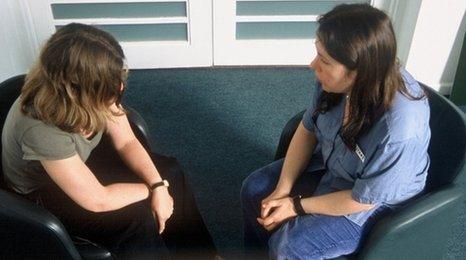Teenager inquest jury retires to consider conclusions
- Published

The jury in the inquest into the death of Tallulah Wilson has retired to consider its conclusions.
The 15-year-old, from West Hampstead in north-west London, died after being hit by a train on 14 October, 2012.
A five-day hearing at St Pancras Coroners Court has heard the teenager became so obsessed by the internet that she created a fantasy cocaine-taking character to escape reality.
The court also heard how she posted self-harming pictures online.
Giving directions, Mary Hassell, senior coroner for Inner London North, warned the jurors not to reach their conclusions based on sympathy for those involved but on facts alone.
"Remember that your duty to the truth transcends any feelings of sympathy that you may have," she said.
"You may have feelings of sympathy for a great many of the people who gave evidence to you in court.
"You may feel sympathy for a great many of those who were involved but you must not reach a conclusion based on sympathy, you must reach a conclusion on your determination of the facts - in other words the truth."
The jury will not deliver its narrative determination until Wednesday afternoon at the earliest.
Severely depressed
Detective Sergeant Adrian Naylor, from British Transport Police, said last week that materials including computers, diaries and a journal had been taken from Tallulah's home as part of an investigation into her death.
He told the hearing there had been "disturbing writings relating to self-harm and self-loathing" in a journal that was taken from the house.
One picture of self-inflicted injury on a computer had been captioned "my arm", he said.
The inquest heard that consultant psychiatrist Dr Andrew Wiener at the Tavistock and Portman trust had assessed the teenager as being severely depressed when he saw her in May 2012.
But by June his view was that her mood was "lifting", Ms Hassell told the court.
"The last time she saw Dr Wiener on 25 September her main complaint was she felt she had no say with her mum - no say in what happened to her," Ms Hassell said.
"He thought things were on track - although she still needed help and there were conflict issues, she now had mild rather than severe depression."
Follow @BBCNewsbeat, external on Twitter
- Published14 January 2014

- Published29 June 2012

- Published26 March 2012
